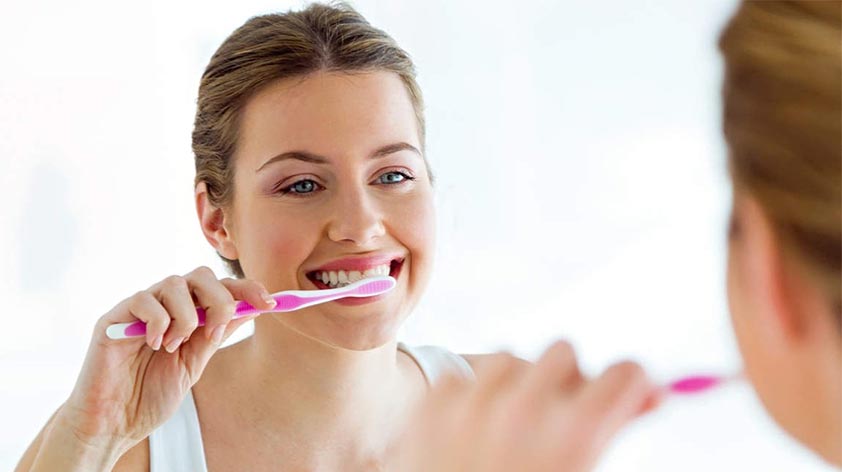
As adults, maintaining a healthy smile is essential not only for aesthetic appeal but also for overall well-being. Oral health is a window to your general health and can influence how you interact with the world. A radiant smile boosts self-confidence and can impact personal and professional relationships.
However, achieving and maintaining such a smile requires more than occasional brushing or visiting the dentist after long intervals; it involves a comprehensive approach to oral hygiene and health. This guide offers ten critical tips for adults who want to ensure their smile remains beautiful and healthy through proper care and lifestyle choices.
1. Regular Dental Checkups
Dental checkups play a vital role in maintaining oral health and teeth. Visiting your dentist regularly, ideally every six months, ensures that any potential issues can be detected and addressed early.
During these visits, dentists do more than just check for cavities; they assess the health of your gums, screen for oral cancer, and check if there are symptoms of other health issues that manifest in the mouth. Regular professional cleanings also remove plaque and tartar that brushing and flossing at home can’t, helping prevent gum disease and prolonging the life of your teeth.
2. Preventing and Treating Tooth Decay
Tooth decay is one of the most common oral health problems, but it’s also highly preventable. Good oral hygiene starts with brushing your teeth at least twice a day using fluoride toothpaste and flossing daily.
These habits reduce plaque buildup, which can lead to decay. If decay does set in, addressing it promptly is crucial to prevent further damage. For advanced decay, a gold crown is often recommended. Gold is exceptionally durable and offers a high level of biocompatibility, which means it is less likely to cause reactions or irritations.
But how much is a gold crown worth? While the cost might seem high (approximately $1,200), the investment is worth it since the crown is extremely durable. Moreover, dental insurance might cover 50% of the cost.
Getting a gold crown is highly recommended since it restores the tooth’s function and appearance, effectively preventing the decay from spreading.
3. Proper Brushing Technique
The technique and tools you use to brush your teeth can significantly impact your oral health. Use a soft-bristled toothbrush to avoid damaging the gums and enamel. Apply gentle pressure and brush in a circular motion to cover all tooth surfaces thoroughly. Each brushing session should last at least two minutes to ensure adequate cleaning.
Don’t forget to replace your toothbrush every three to four months or sooner if the bristles become frayed, as old toothbrushes harbor bacteria and lose effectiveness.
4. Flossing is Essential
While brushing is critical, flossing reaches the 40% of tooth surfaces your brush can’t. Flossing once a day helps remove food particles and plaque from between the teeth and below the gum line, areas susceptible to decay and gum disease.
For those who find traditional floss hard to use, alternatives such as floss picks or water flossers can also be effective.
5. Use Mouthwash
Adding mouthwash to your daily routine can enhance oral hygiene. Mouthwashes with antibacterial properties help reduce the bacteria responsible for gum disease and decay.
They can also help freshen breath and strengthen teeth if they contain fluoride. For the best results, use mouthwash after brushing and flossing to rinse away any loosened plaque and food particles.
6. Avoid Sugary Foods and Drinks
Frequently having sugary foods and drinks is one of the main contributors to tooth decay. Sugar interacts with the bacteria in your mouth to produce acids that erode tooth enamel. This leads to cavities.
To protect your teeth, reduce your intake of sugary treats and beverages. Instead, opt for healthier snacks like nuts or cheese, which can actually help to strengthen tooth enamel and do not encourage decay. Moreover, always brush your teeth or rinse your mouth with water after consuming sugary substances to minimize their harmful effects.
7. Quit Smoking
Smoking is detrimental to oral health. It stains teeth, damages gums, and increases the risk of oral cancer and gum diseases.
Quitting smoking can significantly improve oral hygiene and the overall health of your mouth. It also helps restore gum health and reduces the likelihood of developing severe conditions that could compromise your dental health and the aesthetics of your smile.
There are many resources available, including counseling, medications, and nicotine replacement therapies, that can help you quit smoking.
8. Hydrate with Water
Drinking plenty of water is essential for maintaining good oral health. Water is not only a great mouth cleanser but also helps fight dry mouth—a condition that increases the risk of tooth decay.
By keeping the mouth moist, water helps wash away food particles and dilute the acids produced by bacteria in your mouth. It also aids in maintaining a healthy pH balance in the oral cavity. Make it a habit to drink water after meals and throughout the day to keep your mouth clean and hydrated.
9. Eat Teeth-Friendly Foods
Your diet plays a crucial role in the health of your teeth and gums. Foods that are crunchy and high in fiber, such as apples, carrots, and celery, act like natural toothbrushes. Eating these can help scrub your teeth clean and stimulate the gums, reducing the risk of gum disease.
Additionally, dairy products like milk, cheese, and yogurt are high in calcium and phosphates, which can help remineralize teeth and rebuild enamel. Incorporating these foods into your diet supports oral health and contributes to a stronger, healthier smile.
10. Consider Cosmetic Procedures
For those looking to enhance their smile beyond basic care, cosmetic dental procedures can offer significant improvements. Teeth whitening, veneers, and orthodontics are popular choices that can correct various aesthetic concerns, such as discoloration, misalignment, or uneven spacing.
These procedures should be discussed with a dental professional to ensure they are suitable for your specific needs and will not compromise your dental health.
Maintaining a beautiful and healthy smile as an adult involves more than occasional dental visits and random brushing. It requires a committed approach to regular dental checkups, proper brushing techniques, eating well, and quitting habits like smoking.
By adopting these practices, you not only enhance your smile’s aesthetics but also ensure its health for years to come. Start integrating these habits into your daily routine, and embrace the benefits of a vibrant, healthy smile.









